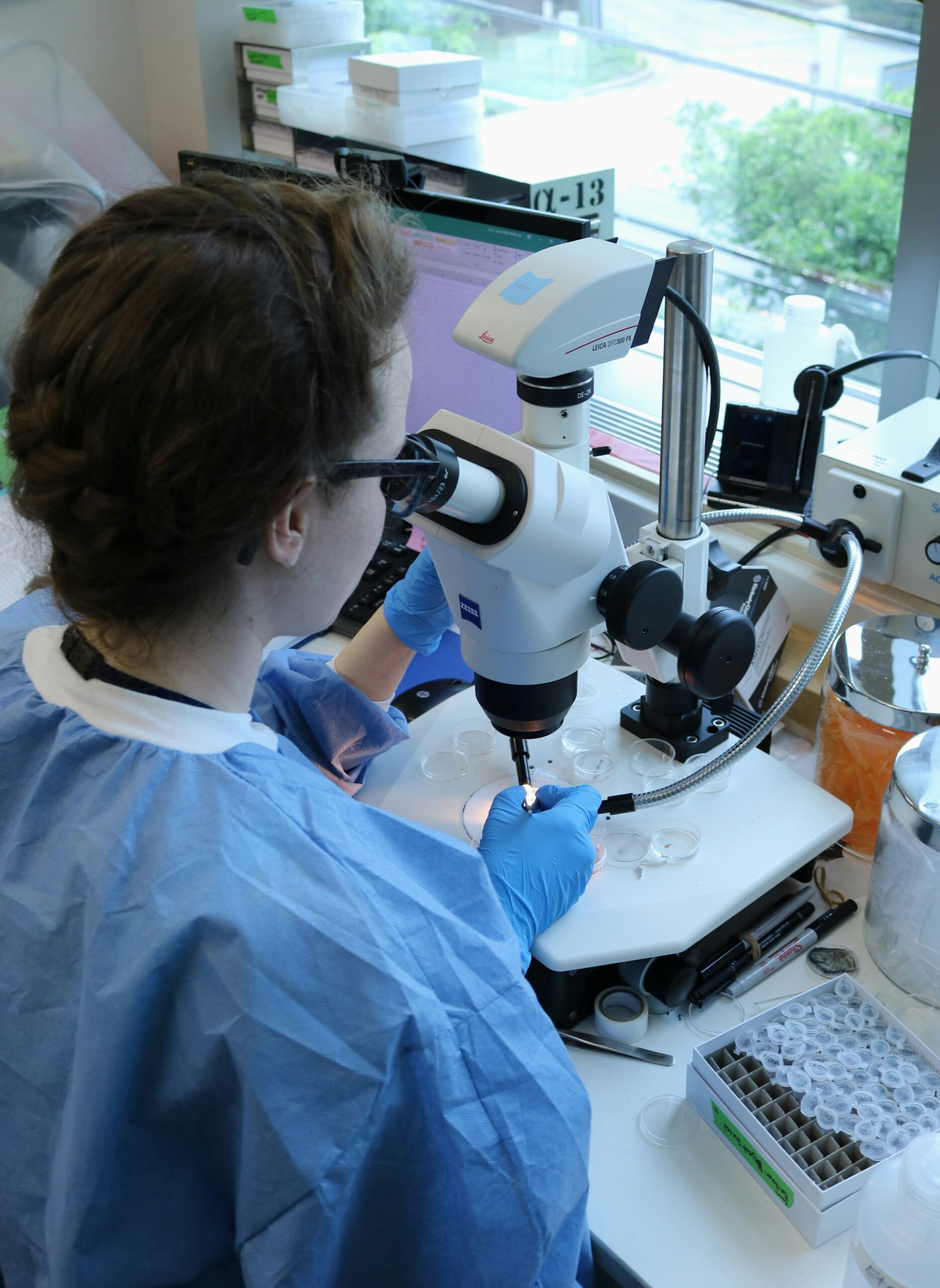Elevating Ethical Fashion with Plant-Based Textiles: Innovations, Brands, and How to Choose Responsibly

Photo by Olga Kovalski on Unsplash
Introduction: The Rise of Plant-Based Textiles in Ethical Fashion
Ethical fashion has evolved dramatically in recent years, with plant-based textiles at the forefront of this transformation. Driven by increasing consumer demand for products that minimize environmental harm and respect animal welfare, plant-based fibers now offer viable, attractive alternatives to traditional synthetics and animal-derived materials. This article explores the world of plant-based textiles in ethical fashion, focusing on their benefits, popular fibers, leading brands, and actionable steps for individuals and businesses to participate in this movement.
Understanding Plant-Based Textiles: Definitions and Benefits
Plant-based textiles are fabrics derived entirely or primarily from renewable botanical sources. Common examples include hemp , organic cotton , linen (flax) , bamboo , and innovative fibers like pineapple (Piñatex) and orange fiber . Unlike synthetic fibers (polyester, nylon) or animal-based materials (wool, leather), these textiles are biodegradable, typically require fewer resources, and avoid animal exploitation.
The advantages of plant-based textiles in ethical fashion include:

Photo by Bozhin Karaivanov on Unsplash
- Lower environmental impact: Many plant fibers require less water, pesticides, and energy than conventional fibers. For instance, hemp is known for its durability and low resource consumption [1] .
- Biodegradability: Plant-based textiles break down naturally, reducing landfill waste and microplastic pollution [5] .
- Renewability: As these fibers are sourced from crops, they can be grown and harvested repeatedly, supporting a circular economy.
- Cruelty-free and vegan: Plant textiles do not rely on animal products, aligning with the values of vegan and animal welfare communities [4] .
Key Plant-Based Fibers and Their Applications
Several plant-based fibers are now widely used in ethical fashion. Each offers unique properties, making them suitable for different garment types and performance needs:
Hemp
Hemp is celebrated for its strength, breathability, and resistance to mold. It produces clothing that is lightweight yet durable and is naturally resistant to wrinkles. Hemp can be grown with minimal pesticide use and enriches the soil, making it one of the most sustainable textile crops [1] .
Organic Cotton
Organic cotton avoids synthetic pesticides and fertilizers, reducing soil and water contamination. It is soft, hypoallergenic, and highly versatile, suitable for everything from T-shirts to underwear. Brands like Harvest & Mill produce organic cotton garments that are both vegan and carbon-neutral [4] .
Linen (Flax)
Linen is made from the flax plant. It is valued for its coolness, moisture-wicking abilities, and natural luster. Linen production generally requires less water than cotton, and the resulting fabric is both strong and biodegradable [5] .
Bamboo
Bamboo textiles are soft, breathable, and possess natural antibacterial properties. However, the sustainability of bamboo fabric depends on processing techniques; mechanical processing is preferred over chemical-intensive methods.
Innovative Plant-Based Fibers
Emerging fibers such as Piñatex (from pineapple leaves), orange fiber, and cork are expanding the possibilities for plant-based fashion. These materials often utilize agricultural byproducts, reducing waste and supporting a closed-loop system [5] .
Leading Brands and Real-World Examples
Many fashion brands are committed to using plant-based fibers in their ethical collections. Here are several industry leaders and their approaches:
- Loomstate uses only eco-friendly fabrics, including organic cotton and hemp, in all its collections [1] .
- Matt & Nat creates vegan accessories with a focus on plant-based and recycled materials [1] .
- Mara Hoffman offers swimwear and ready-to-wear collections made from hemp and other plant-derived textiles, emphasizing ethical sourcing [1] .
- Patagonia and MATE the Label are recognized for their transparent supply chains and use of low-impact, plant-based fibers [3] .
- Sustain by Kat manufactures basics using organic, plant-dyed fabrics in Los Angeles [2] .
- Harvest & Mill produces vegan essentials from U.S.-grown organic cotton with a carbon-neutral process [4] .
Some brands highlight their commitment by publishing detailed information about their supply chains, certifications, and production methods. For the most current details and to verify brand claims, visit the official websites of these companies or search for their sustainability reports.
How to Access and Choose Ethical Plant-Based Textiles
Consumers and businesses interested in integrating plant-based textiles into their wardrobes or product lines can take several actionable steps:
- Research Brands: Seek out companies that prioritize transparency, publish environmental impact assessments, and use certified organic or plant-based fibers. Use keywords such as “certified organic cotton clothing,” “hemp apparel,” or “plant-based fashion brands” in search engines.
- Check Certifications: Look for recognized certifications, such as Global Organic Textile Standard (GOTS), OEKO-TEX, or USDA Organic. These indicate rigorous environmental and social responsibility standards.
- Prioritize Local and Small-Batch Production: Purchasing garments made locally or in small batches can reduce transportation emissions and support ethical labor practices.
- Buy Second-Hand or Upcycled Items: Shopping for pre-loved plant-based garments extends product lifecycles and further reduces environmental impact [3] .
- Consider End-of-Life Solutions: When clothing is no longer wearable, seek textile recycling programs or upcycling opportunities. Local recycling centers or charitable organizations may accept natural fiber garments for repurposing.
- Stay Informed: Fashion is a rapidly evolving field. Subscribe to reputable sustainable fashion publications, attend virtual events, or join online communities focused on ethical textiles.
For those wishing to start a clothing line or incorporate plant-based textiles into manufacturing, consult with sustainable pattern-making and production services. Many providers now offer eco-friendly design and digital pattern solutions. To find such services, search for “sustainable pattern making” or “eco-friendly garment manufacturing” online. Always request information about fiber sources and processing methods.
Challenges and Solutions in Adopting Plant-Based Textiles
While plant-based textiles offer substantial benefits, there are challenges to consider:
- Processing Impacts: Some plant fibers (such as bamboo) can involve chemical-intensive production. Whenever possible, select mechanically processed fibers or those certified for clean production.
- Cost and Availability: Ethical, plant-based garments may be more expensive due to small-scale production and certification costs. To offset this, consider buying timeless, versatile pieces or shopping second-hand.
- Greenwashing: Some brands make unverified sustainability claims. Always check for third-party certifications and supply chain disclosures.
- Performance Trade-Offs: While plant-based fibers are improving rapidly, some may not match the stretch or durability of synthetics. Look for blends or innovative treatments that enhance performance without sacrificing sustainability.
Overcoming these challenges requires informed choices, ongoing education, and supporting brands that are genuinely committed to sustainable practices.
Alternative Approaches and Future Innovations
In addition to established fibers, research and innovation are leading to new plant-based materials and production methods. Developments like lab-grown fibers, agricultural waste upcycling, and regenerative agriculture practices could further enhance the sustainability of ethical fashion. Collaborations between designers, scientists, and farmers are essential to scale these innovations.
If you are interested in supporting or accessing the latest in plant-based textiles, consider joining online forums, attending fashion sustainability conferences, or reaching out to university research centers focused on textile innovation. You can also follow recognized thought leaders in sustainable fashion for news and opportunities.
Conclusion: Taking Action for a Sustainable Fashion Future
Plant-based textiles are a cornerstone of ethical fashion, offering tangible benefits for the environment, animals, and society. By making informed choices and supporting brands with verified sustainability practices, you can contribute to a more responsible and regenerative fashion industry. Stay curious, demand transparency, and explore the many ways plant-based textiles can fit your values and lifestyle.
References
- [1] Nori (2025). Top Hemp Clothing Companies Promoting Sustainability in 2024.
- [2] Green Dreamer (2024). 12 Plant-dyed, organic clothing brands to support and wear for your …
- [3] Impactful Ninja (2024). 12 Most Sustainable Plant-Based Clothing Brands.
- [4] PETA (2025). Eco, Vegan-Friendly Clothing Brands You Need to Know About.
- [5] Smart Pattern Making (2025). Top Plant-Based Fibers for Sustainable Fashion: Eco-Friendly Innovations & Textiles.



